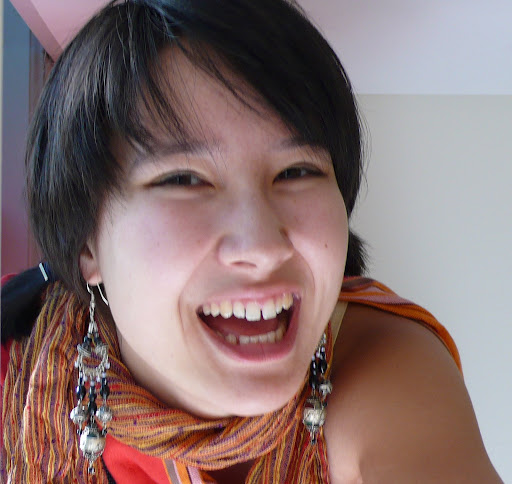What I Do, What I Don't Do
An incomplete description of what work I will be doing.
My position at the Komku Trust is undefined. This is the first time that
Komku is part of the Kuru Family of Organizations, a group founded in the 1980s to promote community development among the San, or Bushman, people. When it was founded, Kuru was one organization with several different departments, but at some point the directors decided that it was getting too large and unwieldy, and it would be better to split the organization, each department then becoming its own independent non-profit. Komku, thus, is one of about 6 or 7 different groups all operating under the umbrella of Kuru. There is a lot of overlap between the groups, and all are linked and coordinated by an administrative body called Letloa. The complex politics governing the interactions between all of these organizations is too much for me to get into right now, and I don’t understand it completely myself. Suffice it to say that it is complicated. On the other hand, it is very interesting to be linked with such a diverse array of organizations, and to have the opportunity to see what all of them are doing.
Komku itself has three departments – the community health outreach program, the media and research program, and the livelihoods program. On top of that there is the coordinator, the accountant, and various drivers, helpers, etc.. I think we have 16 employees altogether, though only 6 or so seem to do any work on a regular basis. At the moment it seems most likely that I will be working with the livelihoods program, which exists to help the San develop sustainable sources of income. There are a number of projects on the go at the moment, in various stages of implementation: cultivating hoodia, a cactus used traditionally to suppress hunger and thirst in San hunters when they were tracking animals and away from food and water for days at a time; a community-run campsite in Chobokwane, which is currently rather decrepit; cattle syndicates set up to allow the San to actually purchase land; and other projects which I haven’t learned about yet. In an ideal world, I would work with the campsite and cattle syndicates to increase ecotourism and make sure everything is ecologically healthy and sustainable. For the moment, though, I am simply trying to figure out how everything works.
Last week, I spent Monday-Wednesday out in the field with the health program, visiting four of the settlements that Komku works in. Komku does not technically work with any of the residents of D’Kar (that is the domain of the D’Kar Trust, another Kuru organization), but instead assists a number of mostly-San settlements in Ghanzi District. So, traveling with the director of the Komku health program, one of the employees of the Letloa health program, and a driver, we set out to visit the clinics in the settlements and collect reports from the nurses and the DOTS (Directly Observed Treatment Supporters – they help people with TB stick with their treatments).
I spent the rest of the week attending various meetings, listening and trying to take in a million things I don’t understand yet, and helping write up the report on the settlement clinics. I also attended the award ceremony at the local primary school, which was a lot of fun, though I couldn’t understand a word of it. Highlights: traditional dancers, coached by one of my new friends; drum majorettes toting battered batons, marching to the beat of a stick whacking a cardboard box; just being in a school again, which I miss.
I hope to spend the next few weeks doing the same thing with the other programs – going out into the field and seeing what’s happening on the ground; helping to write up reports and seeing the official side of things; attending meetings and gradually understanding more and more. Though it’s completely up in the air at the moment, I suspect I’ll end up working with livelihoods, because that’s where I have the most to offer; the health program is interesting, but it seems to be well in hand, and I don’t have much experience with health. What I want to do is help the livelihoods program to mold one of the campsite/game reserve projects into a viable, independent, ecologically-friendly business. But I have so much to learn, and before I can help anyone do anything, I need to understand more about how Komku works, how D’Kar works, what the San people want, and what the obstacles are.
Nothing is clear-cut, and nothing moves quickly. Meetings go on for many hours, in several languages, as people gradually raise their concerns – someone will sit silently for the first hour, and then hint at their idea, and then an hour after that will voice it fully, leading to an entirely new line of argument and discussion. Everyone’s opinion is considered. Emotions are expressed. New ideas are raised. Old ideas are reviewed, over and over and over again. People are very open about raising disagreements, which is sometimes productive, and sometimes agonizingly repetitive. I do a lot of listening.
Looking forward, I think I may spend the entire remainder of 2008 bouncing from project to project, helping out in small ways – report-writing, computer support, etc – and doing my best to understand all angles of Komku’s work. It’s not really possible for me to take a lot of initiative at this point, because all of the programs are winding down for the year. Any remaining projects or workshops have been scheduled, there isn’t time or money to be starting new ones or making major revisions. So I’ll sit tight, listen hard, and make my move in 2009.
Two weeks in



0 Comments:
Post a Comment
Subscribe to Post Comments [Atom]
<< Home